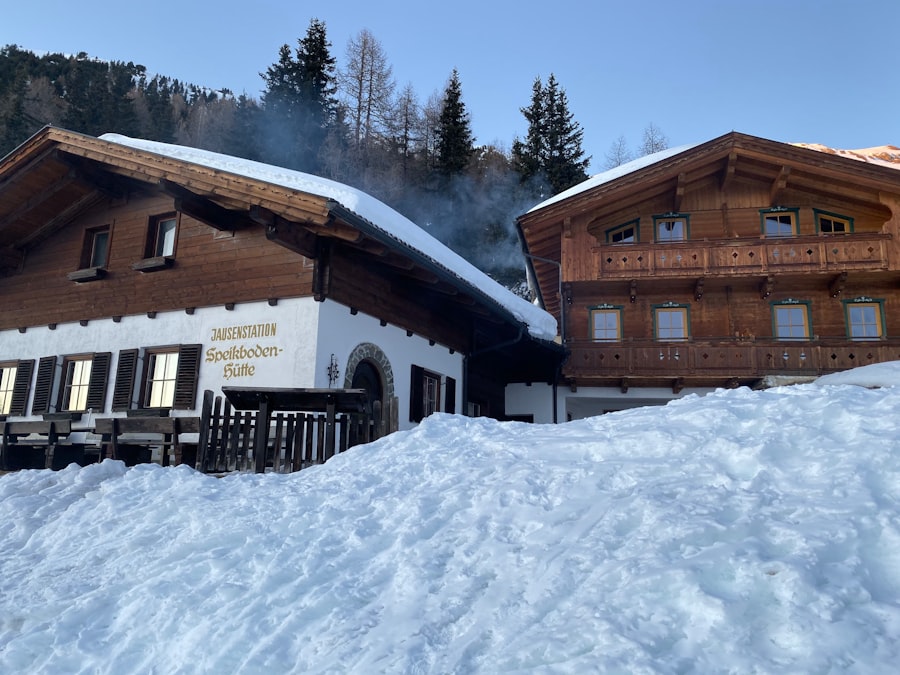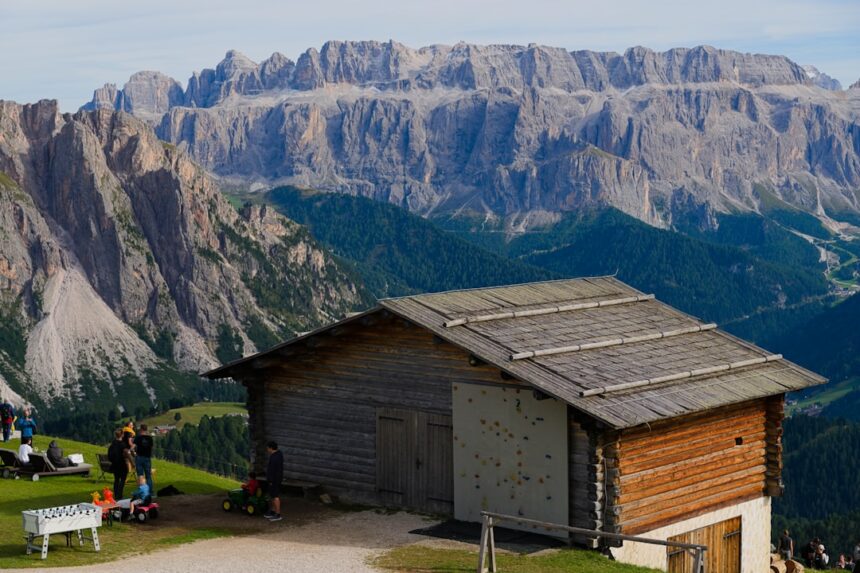Inheriting a family cabin can be a bittersweet experience, filled with both joy and complexity. The legalities surrounding inheritance can often feel overwhelming, especially when emotions run high.
Each state has its own set of rules regarding inheritance, which can include how property is divided among heirs, the necessity of a will, and the implications of intestacy laws if no will exists. It is essential to familiarize myself with these legal frameworks to navigate the process smoothly. Moreover, I have learned that the title of the cabin plays a significant role in determining how it is inherited.
If the cabin was held in joint tenancy, for instance, it may automatically pass to the surviving owner without going through probate. On the other hand, if it was solely owned by a deceased family member, the cabin may need to go through probate, which can be a lengthy and complicated process. Understanding these nuances not only helps me prepare for what lies ahead but also allows me to make informed decisions about the future of the family cabin.
Key Takeaways
- Understanding the legalities of inheriting a family cabin is crucial to avoid potential disputes and conflicts among family members.
- Factors such as state laws, wills, and trusts should be considered when determining inheritance rights to the family cabin.
- Communication and transparency are key in inheritance discussions to ensure that all family members are on the same page and feel heard.
- Navigating potential conflicts and disputes among family members requires open and respectful communication, as well as potentially seeking professional guidance.
- Exploring options for equitable distribution of the family cabin, such as co-ownership or buyout agreements, can help preserve family harmony.
Factors to Consider When Determining Inheritance Rights to the Family Cabin
When it comes to determining inheritance rights to a family cabin, several factors come into play that I must carefully consider. One of the most significant aspects is whether there is a will in place and what it stipulates regarding the cabin. If a will exists, it typically outlines who inherits the property and under what conditions.
However, if there is no will, I must navigate the intestacy laws of my state, which dictate how property is divided among heirs based on familial relationships. Another critical factor is the emotional attachment that family members may have to the cabin. For many, it represents cherished memories and a sense of belonging.
I have found that these emotional ties can complicate discussions about inheritance rights. It’s essential to balance legal entitlements with the sentimental value that the cabin holds for each family member. This delicate interplay can lead to difficult conversations, but recognizing these feelings is vital in ensuring that everyone feels heard and respected during this process.
The Importance of Communication and Transparency in Inheritance Discussions

Effective communication is paramount when discussing inheritance matters related to the family cabin. I have come to appreciate that open dialogue can prevent misunderstandings and foster a sense of unity among family members. By discussing our thoughts and feelings about the cabin openly, we can address any concerns or expectations before they escalate into conflicts.
I have found that setting aside time for family meetings can create a safe space for everyone to express their views and desires regarding the cabin. Transparency is equally important in these discussions. I believe that sharing information about the legal status of the cabin, any financial obligations tied to it, and potential future plans can help demystify the process for everyone involved.
When all family members are on the same page, it reduces anxiety and builds trust. I have seen firsthand how transparency can lead to collaborative decision-making, allowing us to work together toward a solution that honors both our legal rights and our emotional connections to the cabin.
Navigating Potential Conflicts and Disputes Among Family Members
| Metrics | Data |
|---|---|
| Number of family meetings held | 10 |
| Number of conflicts resolved | 8 |
| Number of unresolved disputes | 2 |
| Average duration of family meetings | 1 hour |
Conflicts can arise easily when it comes to inheriting a family cabin, especially when multiple family members have differing opinions on its future. I have experienced firsthand how disagreements can stem from various factors, including differing emotional attachments, financial considerations, or even personal grievances unrelated to the cabin itself. It’s crucial for me to recognize these potential sources of conflict early on so that I can address them proactively.
One effective strategy I have found is to approach conflicts with empathy and understanding. By acknowledging each family member’s feelings and perspectives, I can create an environment where everyone feels valued. Mediation can also be a helpful tool in resolving disputes; sometimes, having an impartial third party facilitate discussions can lead to more productive conversations.
Ultimately, my goal is to find common ground that respects both our legal rights and our emotional connections to the family cabin.
Exploring Options for Equitable Distribution of the Family Cabin
When it comes to deciding what happens to the family cabin after inheriting it, exploring options for equitable distribution is essential. I have learned that there are various ways to approach this issue, depending on the needs and desires of all involved parties. One option could be for one family member to buy out the others’ shares if they wish to retain sole ownership of the cabin.
This approach allows for continued use of the property while providing financial compensation to those who may not want or be able to maintain their stake in it. Another possibility is to establish shared ownership among family members. This arrangement can work well if everyone is committed to maintaining the cabin together and agrees on how it will be used.
I have found that creating a formal agreement outlining each person’s responsibilities and rights can help prevent misunderstandings down the line. Regardless of which option we choose, I believe that prioritizing fairness and open communication will lead us toward a solution that honors our family’s legacy.
Seeking Professional Guidance from Estate Planners and Lawyers

Navigating the complexities of inheriting a family cabin often requires professional guidance from estate planners or lawyers who specialize in inheritance law. I have come to understand that seeking expert advice can provide clarity on legal obligations and help me make informed decisions about the future of the property. These professionals can assist in drafting wills or trusts that clearly outline how the cabin should be handled after death, ensuring that my wishes are legally binding.
Additionally, estate planners can help me understand tax implications associated with inheriting property, which can be quite complex. They can provide insights into potential capital gains taxes or property taxes that may arise from ownership changes. By consulting with professionals early in the process, I can avoid costly mistakes and ensure that my family’s interests are protected as we navigate this journey together.
Preserving the Legacy of the Family Cabin for Future Generations
The family cabin often holds deep sentimental value, representing generations of memories and traditions. As I think about inheriting this property, I feel a strong desire to preserve its legacy for future generations. One way I can do this is by establishing a family trust that outlines how the cabin should be maintained and used over time.
This trust could include guidelines for upkeep, usage schedules, and even provisions for future renovations or improvements. Moreover, I believe it’s essential to involve younger family members in discussions about the cabin’s future. By sharing stories and experiences related to the property, I can help instill a sense of pride and responsibility in them.
Organizing family gatherings at the cabin can also reinforce its importance as a gathering place for our family, ensuring that its legacy continues long after we are gone.
Addressing Tax Implications and Financial Considerations of Inheriting a Family Cabin
Inheriting a family cabin comes with various financial considerations that I must address carefully. One significant aspect is understanding potential tax implications associated with inheriting real estate. Depending on my jurisdiction, there may be estate taxes or capital gains taxes that could impact my financial situation after inheriting the property.
Consulting with a tax professional has become essential for me in navigating these complexities. Additionally, I need to consider ongoing costs associated with maintaining the cabin, such as property taxes, insurance premiums, and maintenance expenses. It’s crucial for me to create a budget that accounts for these costs so that I can make informed decisions about whether to keep or sell the property.
By addressing these financial considerations upfront, I can ensure that my family’s legacy remains sustainable for years to come.
Creating a Plan for Maintenance and Upkeep of the Family Cabin
Once I inherit the family cabin, creating a comprehensive plan for its maintenance and upkeep becomes paramount. This plan should outline responsibilities among family members regarding cleaning, repairs, and seasonal preparations for use. By establishing clear roles and expectations, I can help ensure that everyone feels invested in maintaining the property.
I have also found it beneficial to set aside a dedicated fund for maintenance expenses. This fund could cover routine upkeep as well as unexpected repairs that may arise over time. By proactively addressing these needs, I can help preserve not only the physical structure of the cabin but also its emotional significance within our family.
Understanding the Emotional and Personal Dynamics of Inheriting a Family Cabin
Inheriting a family cabin is not just a legal transaction; it’s an emotional journey filled with personal dynamics that must be navigated thoughtfully. Each family member may have different feelings about what the cabin represents—some may see it as a cherished retreat while others may view it as a burden or source of conflict. Recognizing these diverse perspectives has become essential for me as we move forward in this process.
I have learned that acknowledging emotions openly can foster healing and understanding among family members. Sharing stories about our experiences at the cabin can help us connect on a deeper level and remind us why preserving this property matters so much. By prioritizing emotional well-being alongside legal considerations, I believe we can create an environment where everyone feels valued throughout this journey.
Finding Resolution and Peace in the Inheritance Process for the Family Cabin
Ultimately, my goal in navigating the inheritance process for our family cabin is to find resolution and peace among all involved parties. This journey may be fraught with challenges, but by prioritizing communication, empathy, and collaboration, I believe we can reach an outcome that honors both our legal rights and our emotional connections to this cherished property. As we work through potential conflicts and explore equitable solutions together, I am hopeful that we will emerge from this experience with strengthened relationships and a renewed commitment to preserving our family’s legacy at the cabin.
By approaching this process with love and understanding, I am confident we will find common ground that allows us all to cherish this special place for generations to come.
When it comes to deciding who gets the family cabin, emotions can run high and family dynamics can become complicated. It’s a topic that many families face, especially when the cabin holds sentimental value and cherished memories. An article that delves into similar family dilemmas can be found on the website “Am I Wrong Here,” which often explores complex family issues and offers insights into resolving them. For more perspectives on handling family property disputes, you can read a related article on their This resource provides valuable advice and considerations for families navigating the tricky waters of inheritance and property division. WATCH THIS! 🤯He Said I’m Not Family So I Took His Inheritance: The Ultimate Karma Twist The determination of who gets the family cabin typically depends on various factors such as the terms of the will, any existing co-ownership agreements, state laws, and the wishes of the deceased owner. Yes, the terms of the will can dictate who gets the family cabin. If the deceased owner specified in their will who should inherit the cabin, then that person would typically be the one to receive it. If there is no will or the will does not mention the family cabin, the distribution of the property would typically be determined by state laws of intestacy, which outline how an estate is distributed when there is no will. Yes, multiple family members can inherit the family cabin if the deceased owner specified co-ownership in their will or if state laws of intestacy dictate that the property should be divided among multiple heirs. Yes, family members can dispute the inheritance of the family cabin, especially if there are disagreements over the terms of the will, the value of the property, or the intentions of the deceased owner. This can lead to legal proceedings to resolve the dispute.FAQs
What factors determine who gets the family cabin?
Does the will dictate who gets the family cabin?
What if there is no will or the will does not mention the family cabin?
Can multiple family members inherit the family cabin?
Can family members dispute the inheritance of the family cabin?




